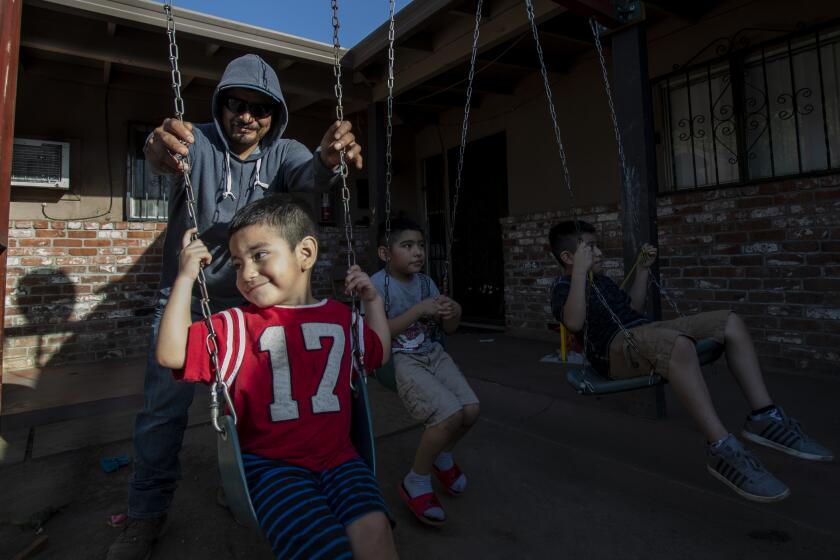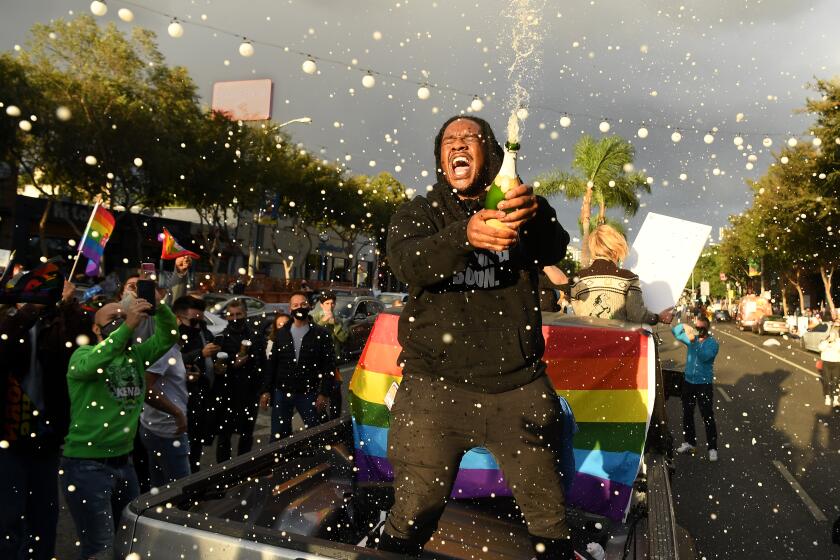In liberal California, Black Lives Matter protests in some towns meet with ‘scary’ backlash
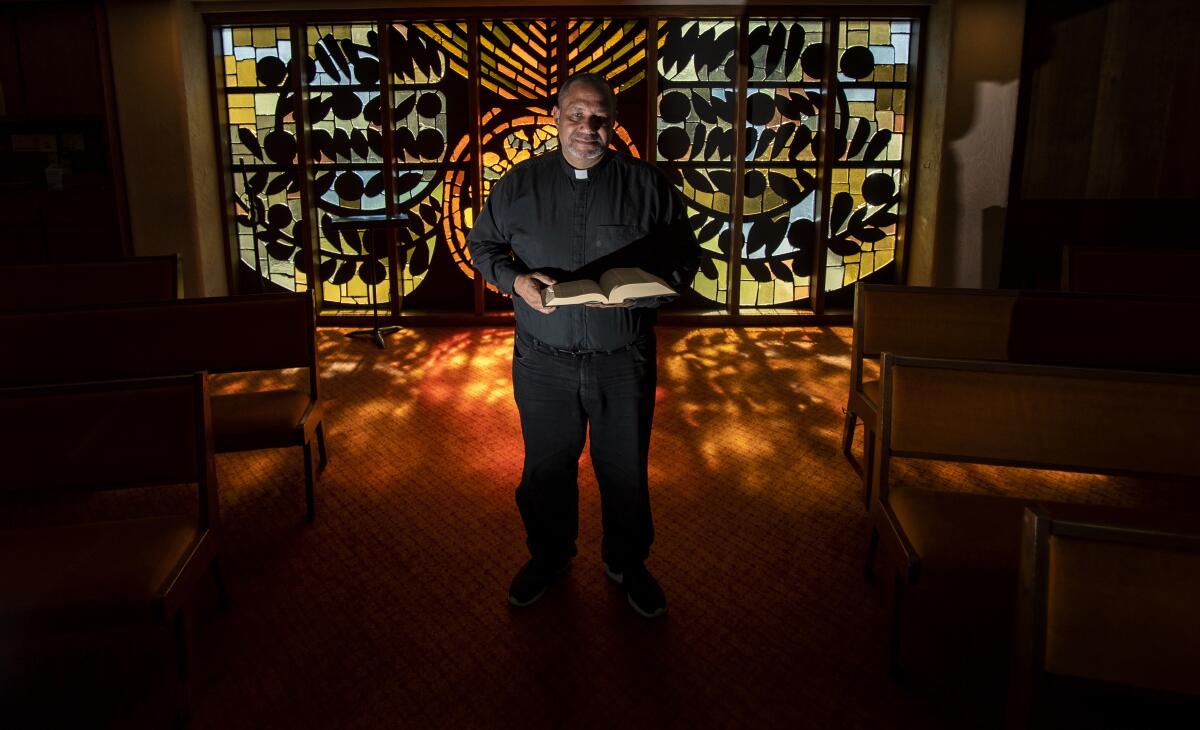
- Share via
LODI, Calif. — Pastor Nelson Rabell-González knew that “livable, lovable Lodi,” as locals call it, had a problem when men carrying a noose and baseball bats with American flags attached shouted racial slurs at him in September as he helped lead a peaceful protest in this San Joaquin Valley town.
What surprised him was that to some, the problem was him.
“I feel like I am in Alabama prior to the civil rights [movement],” said Rabell-González, an Afro-Caribbean Lutheran minister who in past months has planned some of the first racial justice marches to ever take place in this agricultural outpost made famous by a Creedence Clearwater Revival song about a man stuck where he’s not appreciated. “We are bringing them into the ’60s, this town.”
Though large protests have filled streets in Los Angeles and other cities since a Minneapolis policeman killed George Floyd in May, freshly minted organizers such as Rabell-González are pushing for change in rural communities, often confronting challenges their urban counterparts never encounter.
In Northern California towns such as Nevada City, Fortuna and Quincy, small numbers of protesters have staged events in places where public dissent is uncommon and sometimes unwelcome — resulting in attacks, online doxxing and harassment.
Lacking in numbers, these activists also lack anonymity. In Lodi, everyone has figured out who the new organizers are — a school teacher, a bus driver, a farmworker, a recent high school graduate — and the blowback has been severe: death threats; calls to have them fired from jobs; conspiracy theories about their motives and personal lives.
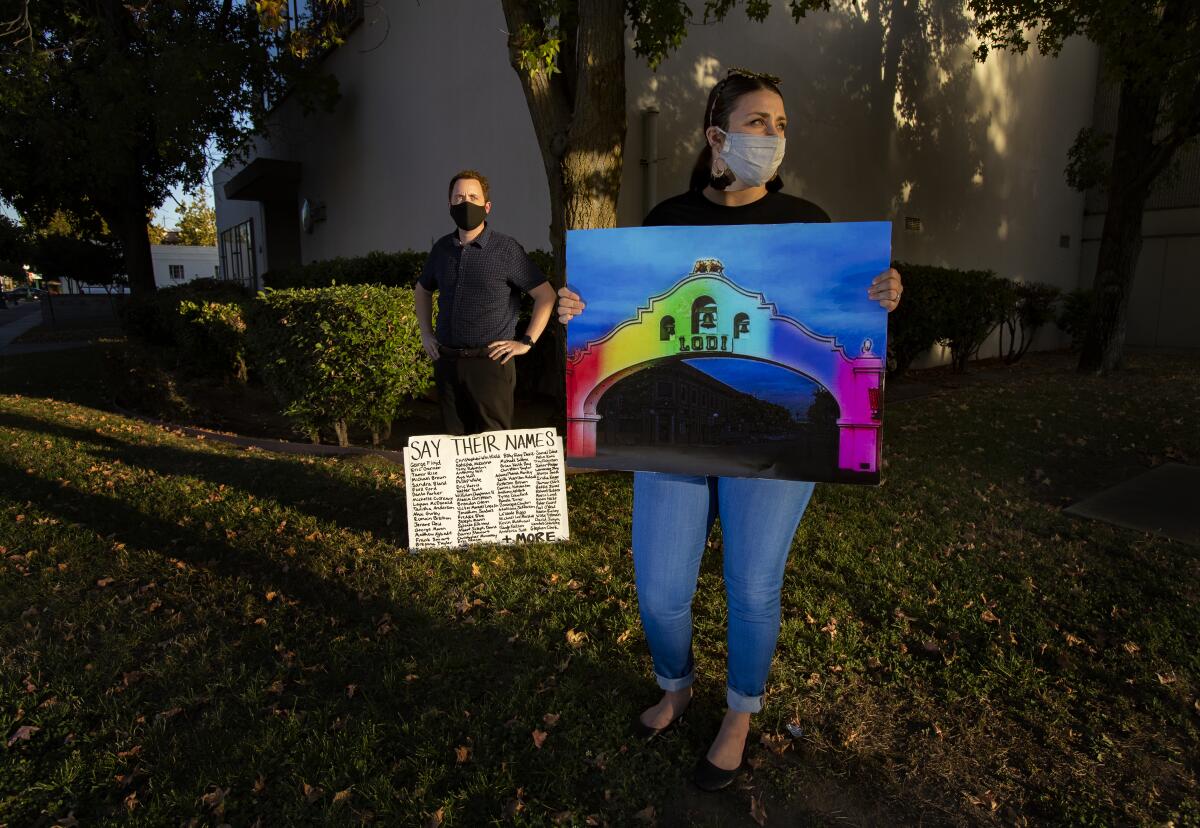
“As allies in this town you get attacked,” said Kat Ellis, an elementary teacher who helped Rabell-González start an organization called A New Lodi to advocate for progressive causes. “This city would like to think they can fear-monger people.”
Ellis said that after taking part in recent events, she was targeted both online and in person, with people calling her a pedophile because her social media profile expressed support for the LGBTQ+ community. The QAnon conspiracy theory favored by some right-wing groups associates the plus symbol with a secret code for a fake network of Democratic child abusers intent on taking over the government.
Her school district received complaints, demanding she be fired, she said. Her husband’s employer put him on paid leave after customers threatened to pull their business.
“It was wildfire,” Ellis said. “My husband and I would be walking around and people would stop and whisper.”
Lodi has transitioned into a prestigious wine region with a Mediterranean climate perfect for Zinfandels, and it aspires to rival Napa and Sonoma by pulling tourists east across Highway 12, out of the coastal hills, through the river delta and into its flat, dry fields now dotted with about 85 wineries. In 2018, Wine Enthusiast magazine named fifth-generation Lodi vintner Adam Mettler of Michael David Winery, owner of popular labels including Inkblot and Earthquake, as its winemaker of the year, bringing acclaim to vineyards once best known for pink-red Tokay table grapes.
But Lodi also has a darker reputation, said city council member JoAnne Mounce, a third-generation Lodian. “Back in the 1950s we were not a community that welcomed diversity,” she said.
After fires and the coronavirus cut wages for many Central Valley farmworkers, a winter slowdown means families are unable to pay for necessities.
Though Mounce doesn’t think it’s “the same place it was,” she said “there are folks in Lodi who have been marginalized for a very long time.”
Near the turn of the century, Lodi was rumored to be a “sundown town,” where people of color were not welcome after dark. Just after Martin Luther King Jr. Day in 1998, a cross was burned in front of the local high school and its Black principal targeted with spray-painted insults.
Today the city is surrounded by a “greenbelt” of agricultural lands that some contend is purposefully preserved as a buffer to nearby Stockton, one of the most diverse cities in California, with high rates of homelessness and poverty. Less than 2% of Lodi’s 65,000 residents — 1,300 people — are Black, according to census data.
“They say, ‘Oh, we haven’t had a George Floyd incident here,” said Rabell-González. “Yeah, you kept Black people out.”
Rabell-González and other criminal justice advocates began organizing shortly after Floyd’s death, including the September march in Lodi’s quaint downtown, which they discussed ahead of time with police. They were met by counter-demonstrators who outnumbered them 3 to 1.
One local counter-protester, his face obscured by a red bandanna and a hat, ran a power saw as marchers went by. Though its chain was removed, “that is intimidating,” said Sierra Brucia, Lodi’s police chief.
“Our officers were out there and they were hearing the N-word and they were hearing references to lynching,” Brucia said. “It was vulgar.”
Before the rally, the internet spread false rumors that violent BLM demonstrators would flood in from nearby Sacramento, intent on destruction, including burning the downtown. Warnings about violence similar to Portland were rampant online, and Lodi 911 dispatchers were inundated for days about alleged caches of rocks hidden by protesters who planned vandalism.
Though police assured residents these were landscaping stones that had been there all along, self-styled local “patriots” insisted they would be present in case law enforcement was overrun.
“Everybody associated with Black Lives Matter is a domestic terrorist,” said one local who came out that day and asked not to be identified because he worries he will be “targeted” by activists. “That is why we were there, to make sure the Democratic failures that happened in Portland didn’t happen in Lodi.”
Vine Sanchez, 18, a recent high school graduate who helped plan the protest, called it a “very scary and surreal experience.” Sanchez tried to keep his identity secret at first, asking Leia Schenk, an organizer from Sacramento, to take the lead, but he received death threats online before the event anyway. Still, he wasn’t prepared for what happened.
“We had people screaming, ‘I’m going to kill you. If the police weren’t here I’d f— you up,’” he said. When the rally was over, Sanchez said the counter-protesters surrounded his vehicle as he tried to leave.
Schenk said, “That was the most tense protest I have been to as an advocate and a leader, and I have been all over the country. They spit at me, they lunged at me, they did it all.”
Nearly two months later, the town is grappling with what the incident means for the city and its future. Like much of California and the country in the wake of a divisive election and a year of racial upheaval, Lodi is left wondering how to move forward while anger, hurt and distrust continue to define its public discourse.
Many Californians rejoiced Saturday as Joe Biden defeated Donald Trump, dancing, marching and honking car horns.
Rabell-González said that community has “quieted down,” and he is “hopeful” because two people of color are predicted to win City Council seats once final tallies are counted in the recent election — one in the low-income district currently held by Mounce.
But for now, Lodi is split between those who contend their fear of protesters was warranted by current events, including property damage after protests in Sacramento and the Bay Area, and those who believe a reckoning over race is long overdue here. In between are the majority of residents, some indifferent, some uncertain, many convinced that outsiders are the crux of the dissent and wishing the whole mess would blow over.
“If you are from a large community and you come to a small, quiet wine county, there are going to be some differences,” Mounce said.
Sanchez, the young organizer, does not believe the counter-protesters are representative of most locals — and thinks some of them may have come from out of town.
“The majority of people aren’t hateful like that,” he said.
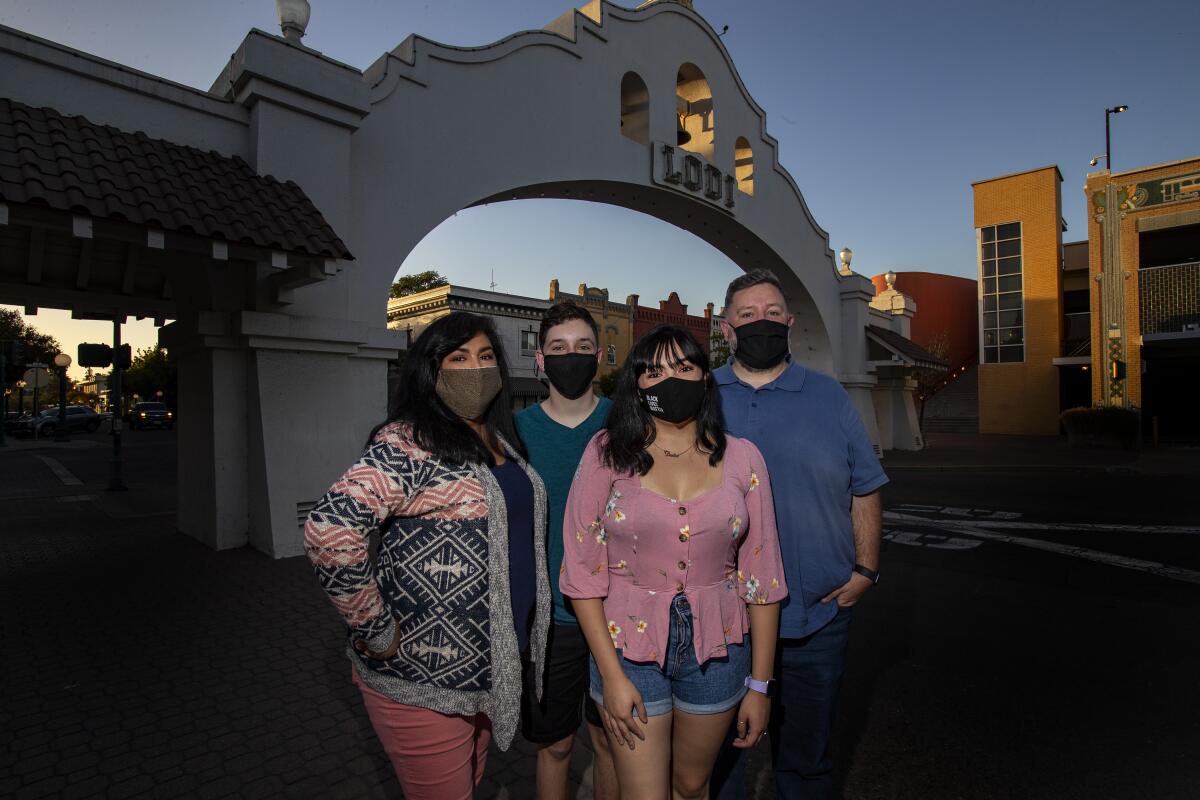
Others aren’t as sure. Bobbi Owens, 21, received so many threats after trying to plan a protest that her parents stepped in to help, in hopes their presence would shield her from harm while still enabling her to speak out. Owens’ mother, Mickey Ditmore, who is Latina, said she never understood her daughter’s view that Lodi was “oppressive” until this experience.
“I think because I was raised here, I’m just like, it is what it is,” Ditmore said.
The response to their organizing “has really started opening up a lot of doors and allowing me to see what she has always been trying to say,” she added.
Though the last few months have brought activism to the forefront, the town was not devoid of it before. Nearly 40% of the population is Latino, many Mexican farmworkers. Bertha Castro Valdez, a school district employee whose parents were farmworkers, has been advocating for the Hispanic community for years, as she puts it, one family at a time.
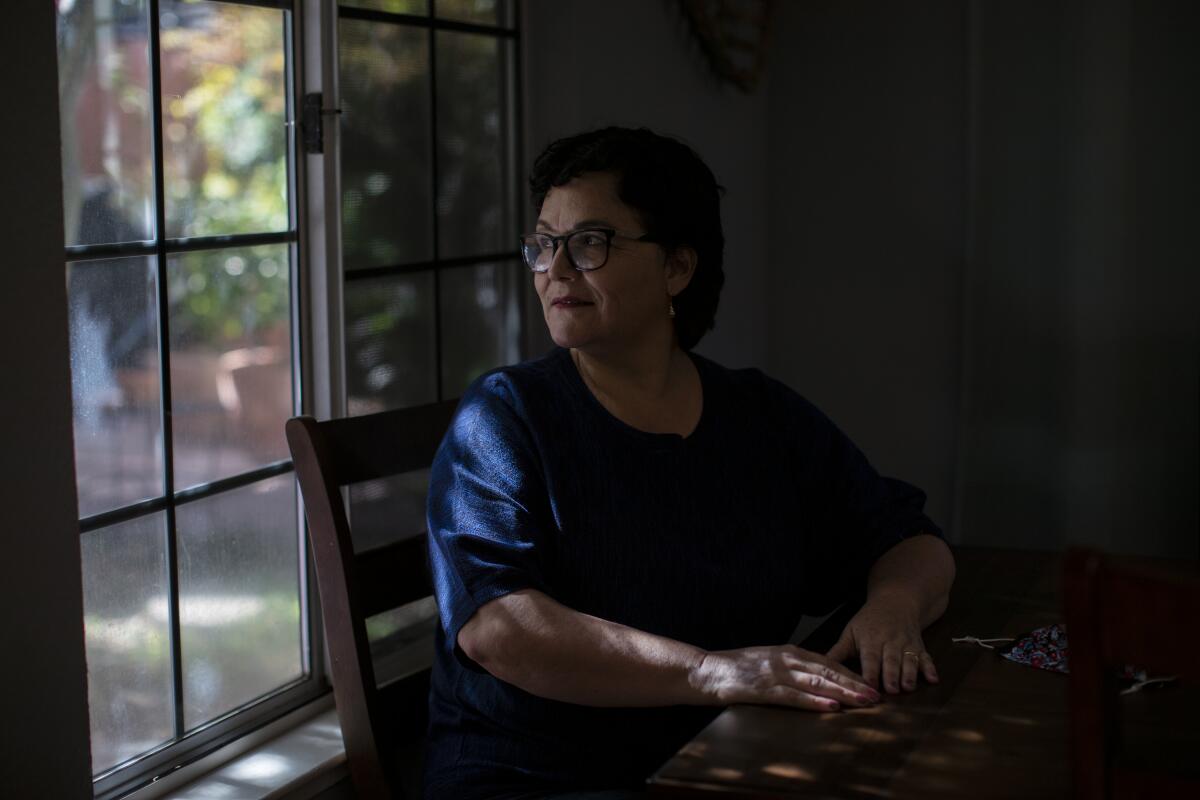
“Now I feel like I am not by myself fighting,” she said. The recent protests, she thinks, though centered on Black lives, have helped expose racial disparities in Lodi so longstanding and entrenched that they can be hard to see, even for those they affect.
“It’s so racist, this town, even the Hispanic community has become racist,” said Castro Valdez. “Those who become professionals forget the community. This is what this town does to you. They pretend they are from Texas. They don’t want to be from Mexico.”
Castro Valdez said that many in the Hispanic community here are afraid to call police or don’t believe it will result in help. “There is always that, ‘Oh, we don’t have an officer who speaks your language,’” she said. “There are two sides of the story and so they only listen to one.”
Brucia, the police chief, said 11 of his 71 officers speak Spanish, and his agency has already put in place several progressive policies including de-escalation training.
But, he said, “I’ll be the first to admit that I don’t truly understand all the intricacies of the BLM matters. I’m a white police chief. I am never going to have a full understanding of that lived experience.”
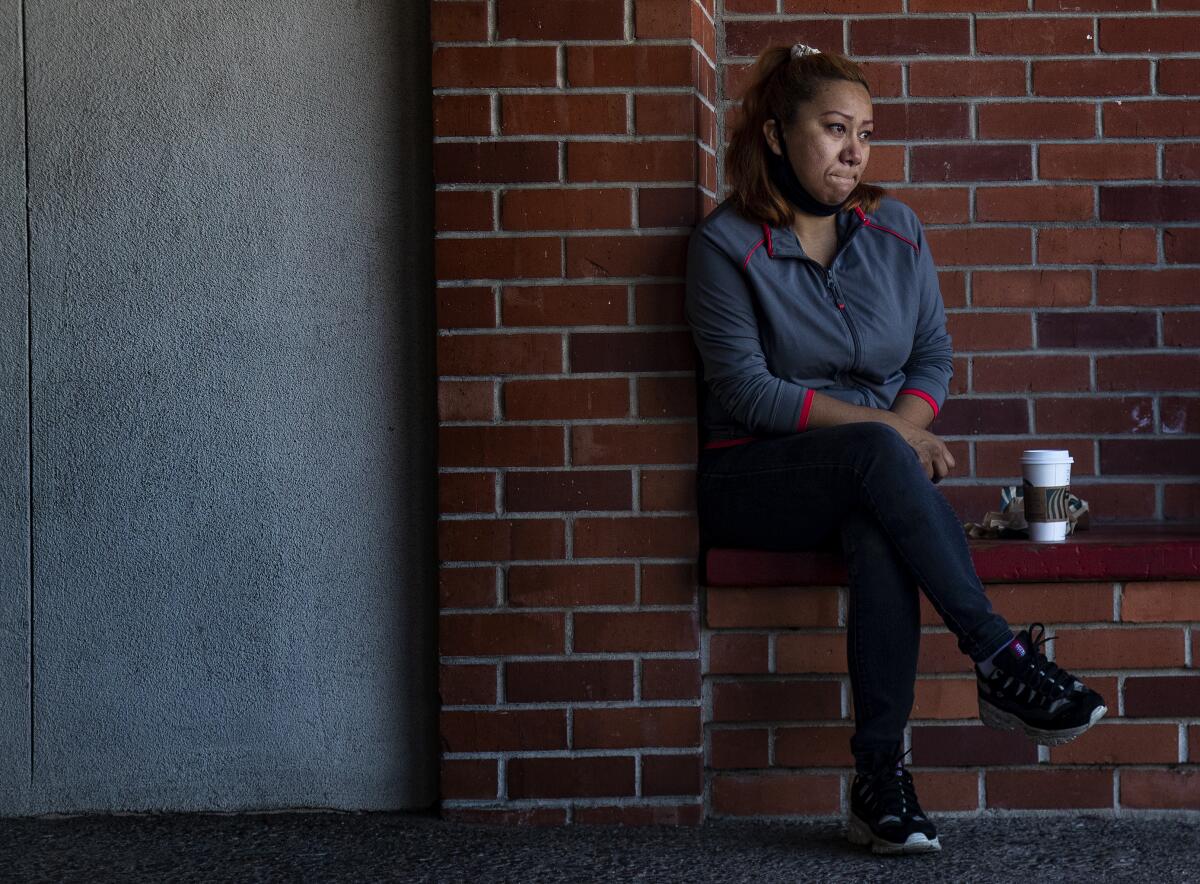
Lissa Barragán, a farmworker also involved in Rabell-González’s group, said she has experienced bias firsthand. Her oldest son, she said, began to be targeted by gang members when he was about 16. Desperate to protect him at a time when gang activity was rampant in her neighborhood, she called police multiple times over months to report the aggressors, she said, who were trying to force him to join though intimidation.
But Barragán said police did nothing — until her son bought a weapon to defend himself. She says that while being chased by gang members, her son fired a gun and was subsequently arrested. She sold her jewelry to pay for his legal defense, but he was convicted and deported to Mexico when he was released.
She has not seen him in two years. She believes if police would have intervened when she asked, her son’s life may have turned out differently.
“What was the reason to call the police if no one would respond?” she asked. “Lodi is a hard place to live.”
More to Read
Sign up for Essential California
The most important California stories and recommendations in your inbox every morning.
You may occasionally receive promotional content from the Los Angeles Times.

